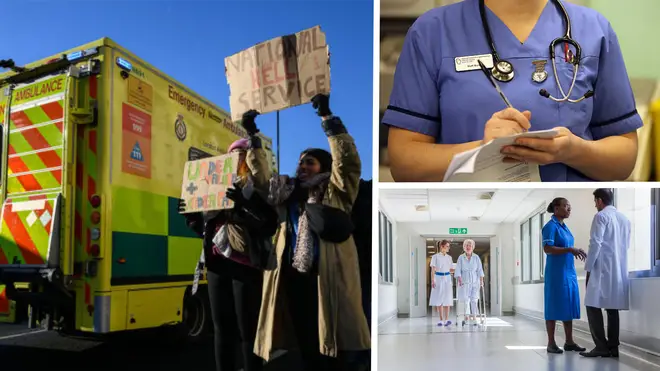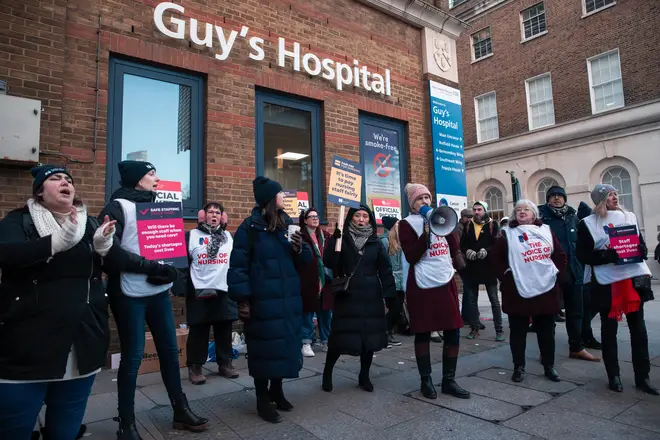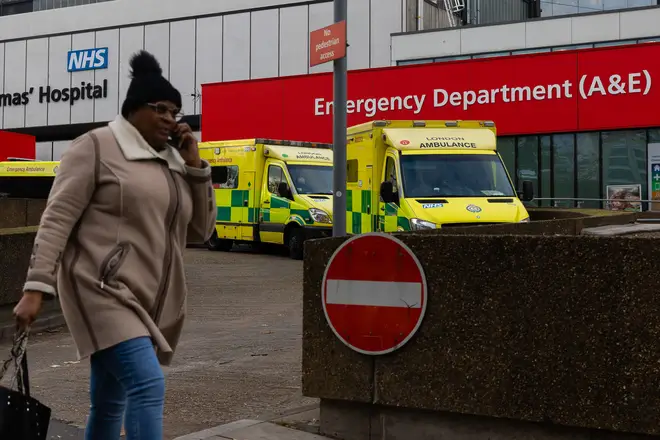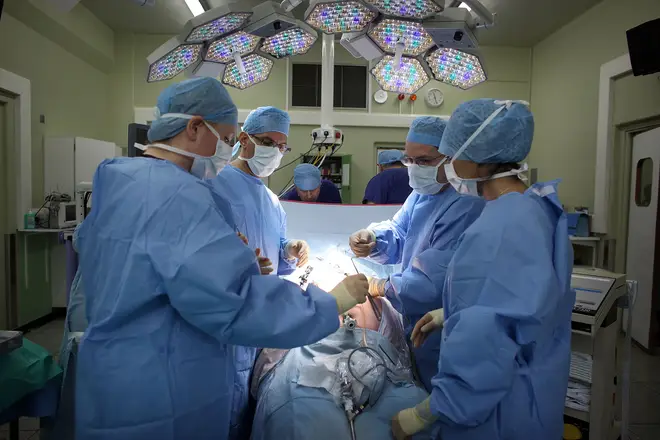
Henry Riley 7am - 10am
16 December 2022, 22:37

Hospitals have been told to free up as many beds as possible before ambulance workers go on strike next week, in a bid to ease pressure on the NHS.
The order to "safely" discharge patients came in a letter from NHS England bosses on Friday, who are concerned that the ambulance strikes next Wednesday and on December 28 will cause "extensive disruption" to the health service.
Senior doctors from other departments in hospitals will also be moved to A&Es in order to help as many patients needing urgent help as possible.
It comes after the first day of nurses' strikes on Thursday, with the second nurses' walkout on Tuesday next week - the day before the first ambulance strike.

Thousands of non-urgent operations and appointments had to be rescheduled as 9,999 nurses joined picket lines on Thursday - but health bosses warned that the ambulance strikes could have an even bigger impact.
Rory Deighton, director of the acute network at the NHS Confederation, told Times Radio: “The amount of harm that will be done on the 21st and the 28th will be significantly higher.
"Lives will be put at risk, patients will come to harm on those two days. And that’s why they are really urging the government to get around the table and to start negotiating.”

He added that although NHS trusts “will be doing absolutely everything that they can to mitigate the impact of these strikes”, it would be “impossible to minimise and to manage out all of that harm”.
The letter from NHS England says that hospitals should make sure ambulances are not left waiting to hand over patients for more than 15 minutes after they arrive, because the effect of delays will be made worse by there being fewer vehicles during the strike.
The letter also says outpatient appointments by senior doctors could be rescheduled so those doctors can go to A&E to decide which patients can be moved safely.

The notice also tells hospital chiefs to “free up maximum bed capacity by safely discharging patients . . . in advance of industrial action”.
NHS England bosses warn that “the impact upon services will vary across different ambulance services but extensive disruption is expected.”
The letter, signed by Sir David Sloman, NHS England’s chief operating officer, professor Sir Stephen Powis, the national medical director, and Dame Ruth May, the chief nursing officer, adds that cancelling scheduled surgeries should only be a last resort, but admit it could be necessary “to reschedule procedures and appointments at scale.
They add that this should be “communicated as far in advance as possible to patients”.
Ambulance unions Unison, GMB and Unite have agreed ambulance staff including paramedics, control room staff and support workers will walk out on December 21 in a dispute over pay.
Another strike will happen on December 28 for those part of the GMB union which is around half of the total number of ambulance staff.
Paramedics will still respond to life-threatening emergency call outs.

There will be taxis used as ambulances for non-urgent emergencies during strikes.
It comes after Rishi Sunak refused to boost nurses' pay, despite the strikes, Tory pressure and unions warning of even more chaos in the weeks ahead.
The Prime Minister insisted the government's four per cent pay offer is both "appropriate and fair". The Royal College of Nursing, which coordinated the NHS's biggest ever strike on Thursday wants a 19 per cent rise.
Thousands of operations were cancelled due to the nurses walkout. Another round of strikes are planned for Tuesday.
But speaking on a visit to Belfast, Mr Sunak said: "The Health Secretary has always been clear, the door is always open, that's always been the case.
"But we want to be fair, reasonable and constructive. That's why we accepted the recommendations of an independent pay body about what fair pay would be."